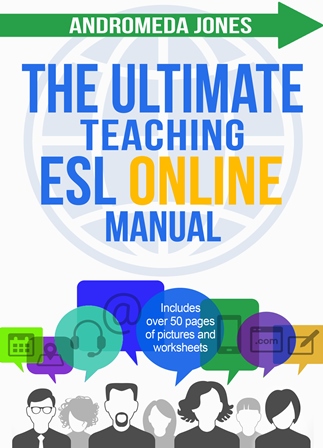Republished from TEFL Insider on Substack.
With the prospect of Alexa-style tutors on the horizon, online language training companies are looking to AI to bypass human teachers and maximise profits.
While removing the human element of teaching has obvious consequences for tutors, what are the costs to students? And if we are taught by bots in the future, what impact will it have on learning outcomes?
Well, as a language teacher I have my thoughts, but first up, let’s look at current developments in the online teaching sector. One of the most prominent examples of AI in the classroom comes from a well-known, San Francisco-based training company (which shall remain nameless) which rolled out an AI “Lesson Assistant” in the summer of 2023. On the surface, the Lesson Assistant helps tutors by creating a lesson summary at the end of the class.
Take a look at the many Reddit threads dedicated to this company, however, and you realise how sinister the Lesson Assistant really is. The software records all classes and cannot be turned off. As such, all conversations, including sensitive information, are captured and recorded. The consequences of this new “innovation” are all over social media. In a notable example, one tutor wrote on a Facebook group about the moment when a student’s disclosure of a personal health problem that not even her husband knew about was recorded in the lesson summary.

Worse still, the Lesson Assistant “critiques” the tutor’s performance and comments if they go off-topic, meaning that the algorithm listens out for certain non-teaching related sentences in speech.
If this isn’t creepy enough, the Tutor Release Agreement (as published on Reddit), states that when a tutor signs up to teach on the platform, the tutor grants the company the right to use their name, likeness, and voice in perpetuity.
In perpetuity. Imagine that.
So, what is this company doing with all this data? Well, the most likely scenario is that it is using it to create an AI tutor. This innovation comes at the cost of the tutors who are, by simply doing their job, handing over not only their intellectual property, but also their very being. It also comes, of course, at the cost of students who lose their privacy and dignity as each interaction is recorded and stored.
Nightmarish though this is, the question comes to mind: ‘If, or even when, companies create AI tutors, will people use them?’
The answer to this, I believe, is ‘yes’ and ‘no’.
The race to the bottom
There are two types of online language tutoring companies: ones which provide classes to private students (known as business-to-consumer or B2C companies) and ones which provide training solutions to corporations whose staff need to upgrade their language skills (business-to-business/B2B).
B2B companies compete against each other for contracts and, as such, seem to be in a downward spiral, offering ever-cheaper solutions to the detriment of quality. Just a decade ago, it was normal for a corporation to invest in one-on-one language classes with a qualified teacher. With cost-cutting, this offering has been downgraded to group classes, and now some training providers offer solutions with no language instruction at all, but rather a virtual classroom where employees practice English in group discussions, adjudicated by an English speaker who offers corrections but no tuition.
In this race to the bottom, B2B language companies will likely offer AI solutions to “train” employees, removing the cost of a human tutor.
But before you hang up your headset, take a breath. For all the hype around AI, I don’t believe it will end human-language teaching. Far from it in fact, because no matter what Silicon Valley executives say, there is a fundamental problem to learning one of our primary human attributes from a non-human “teacher.”
Let me explain.
What AI can’t teach
There is no subject in the world which is more human-centric than language teaching. We didn’t learn our native language from grammar books, exercises or even software programs – we learned it from people.
You may be able to improve your maths, coding or Excel formulas from an AI program, but communication is all about creativity and cultivating relationships.
When I meet a student for the first time, they’ll often tell me how they want to go beyond the “textbook English” they learned at school and speak with more charisma. They want this because, guess what, language is not (just) a function, it is a projection of who you are as a person. Even if you speak perfectly, if your sentences are uninteresting, no one will listen to you.
An algorithm cannot teach you how to give an impactful presentation, tell a joke or be engaging. Only humans can do that.
When given a choice, a student selects a tutor not because he or she has the most perfect grammar (although this important), but because they like their style of communication and want to learn how to emulate them.
Passive learning vs. active learning
Real engagement happens when students are active participants in their learning and not passively fed information. Think of your best learning experiences at school. Likely, this wasn’t when you were impassively listening to the teacher, nor slumped over textbooks: they were when you interacted with someone, either the teacher or a classmate, and learnt something through practical application.
In this way, the personality of a good teacher, who really wishes their students to learn, has a huge effect on learning outcomes. Going back to your own schooling, did you like, let’s say, history, because of the subject? Or was it the passion for the topic that your teacher imparted that engaged you to learn?
The importance of engagement holds particularly true for corporate training as students do not pay for their own classes and so bear no financial penalty if they don’t learn.
When a business student finds a tutor they like, they’ll show up to class, even when they are busy. They’ll throw themselves into learning because they don’t want to disappoint the person behind the screen. Removing the human element kills that motivation. Who cares if you don’t fulfil your commitments? The AI isn’t going to complain.
Learning a language is not a function, it’s about relationships
Language teachers are more than just instructors, they are entertainers, proxy-friends and even counsellors, providing company and understanding, and a sympathetic ear through difficult times. Alexa can’t substitute this, no matter how smart she is because Alexa can’t feel.
No one is listening on the other side and empathising with what the student is going through. Alexa doesn’t think about what a student has said after the class or share her own experiences of life. The interaction is cold and functional – the complete antithesis of why people want to communicate in the first place.
Final thoughts
For all the fanfare around AI, it takes a human to teach another human to speak. Therefore, I truly believe that private students and companies who are not just checking a box in their training plan, but wish to improve the language abilities of staff, will continue to invest in human instruction.
But this is just my opinion. What do you think? Share your thoughts in the comments below.
To illustrate the limitations of software, I’ll leave you with this Whatsapp from my father who has used Duolingo for years to try to learn Spanish.

Oh Dad, book a class on iTalki. Speak to a human!
For more articles like this, subscribe to TEFL Insider on Substack:
Updated monthly, the publications covers new developments in the online TEFL industry (keeping you in the loop of which platforms to work for and which to avoid), as well as teaching tips and funny anecdotes from the thousands of classes I teach every year. All content is 100% free. Join me here.





